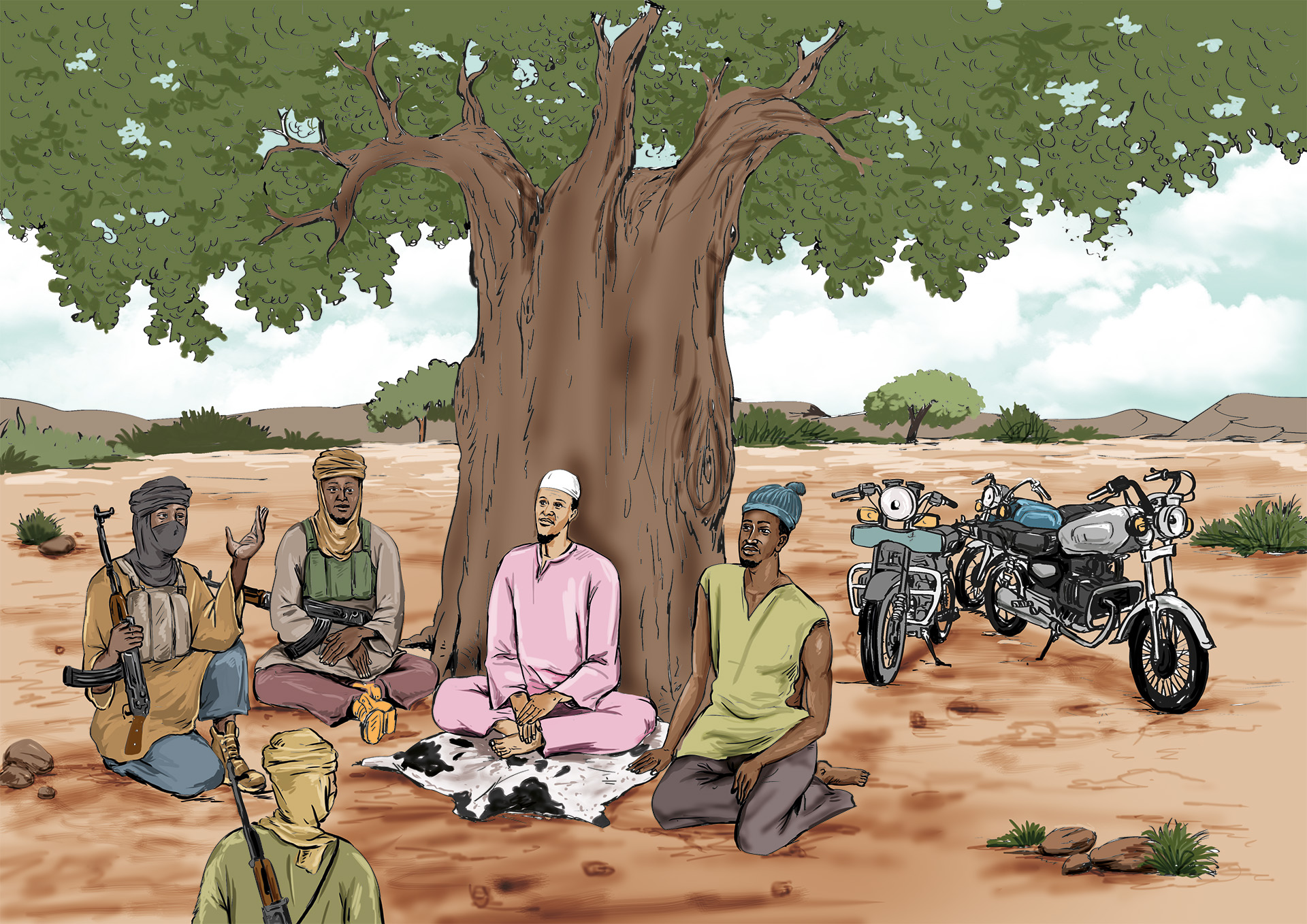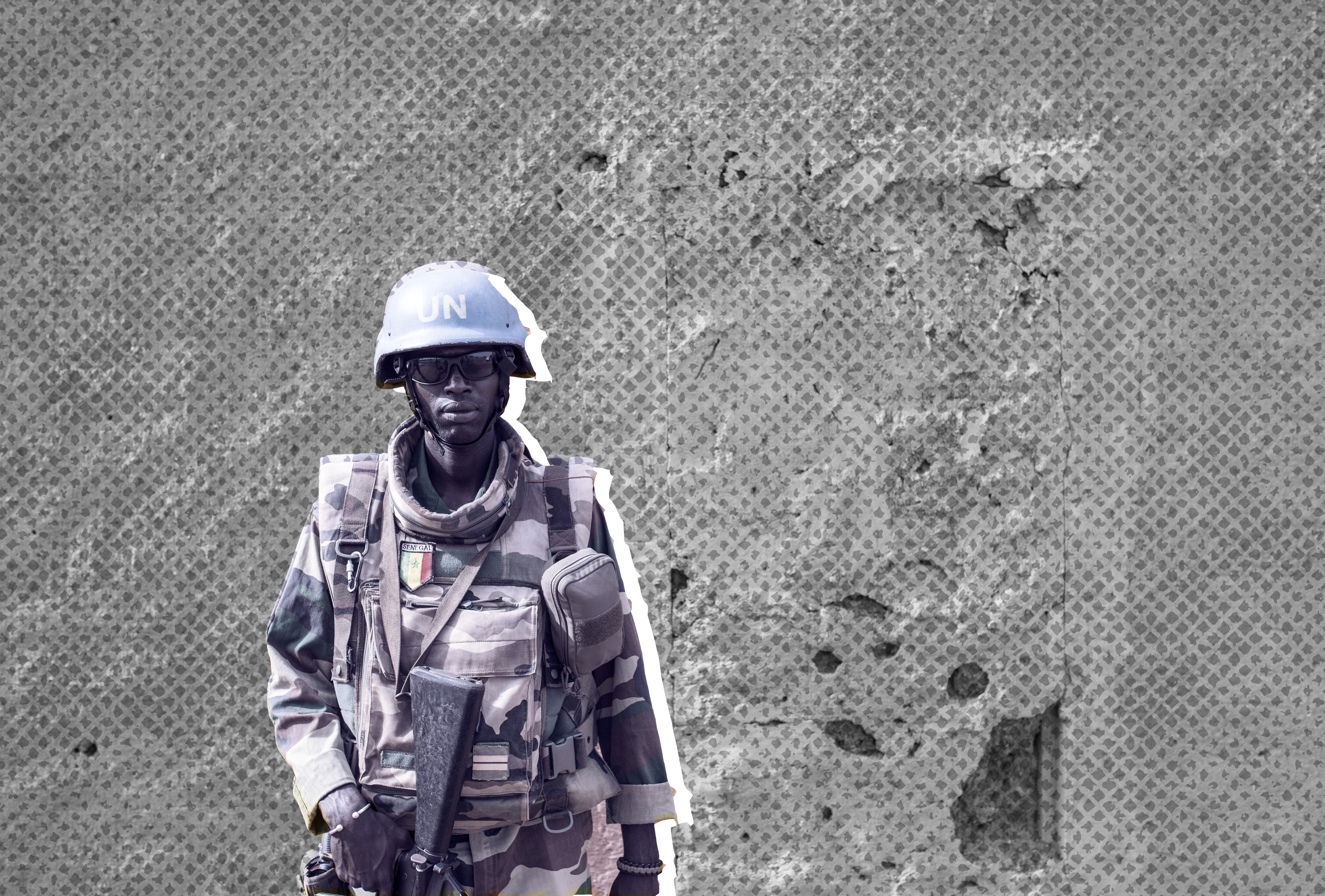As jihadist groups continue to expand across West Africa’s Sahel – and threaten coastal states in the region too – communities have been looking for alternative ways to lessen the impact of conflict on their lives and livelihoods.
Some have landed on a risky option: holding local, frontline dialogues with the insurgents, which include groups linked to al-Qaeda and the so-called Islamic State.
Throughout 2022, The New Humanitarian spent time with community leaders in Burkina Faso and Mali – neighbours with shared problems – seeking to understand what these talks entail and whether they have had a positive impact on the security situation.
Though dialogues led to ad hoc agreements in certain zones afflicted by jihadist attacks, they proved fragile and required major sacrifices: People had to accept a harsh version of sharia law, which especially impacts women and children.
Still, community leaders told us that implementation of sharia varies from place to place, and according to the whims of different jihadist cells. And they almost all agreed that local pacts represented a better alternative to fighting against the militants.
Most community leaders called for their governments to engage in higher-level political talks with militants – a seemingly radical step but one increasingly called for by civil society groups, researchers, and think tanks.
The following review brings together our reporting on the dialogues. It features profiles of courageous community leaders, in-depth analysis of accords, opinion pieces from Sahel scholars, and detailed interviews with government officials.
The review also includes our reporting on the broader security situation in Burkina Faso and Mali, where civilian deaths and humanitarian needs continued to grow through 2022.
Military coups drove instability in Burkina Faso, while Russia’s Wagner Group mercenaries were involved in heinous abuses in Mali. France, meanwhile, wound down its unpopular Sahel mission after nine years on the ground.
For their part, jihadists are now striking the northern edges of coastal states including Benin, Côte d'Ivoire, and Togo. Armies are being deployed and state of emergency laws introduced, but many fear an overzealous security response will make matters worse.

Stories of survival and self-sacrifice from Mali’s local jihadist dialogues;
Four community leaders from central Mali describe their efforts to forge pacts with al-Qaeda-linked jihadists.

A kidnapped teacher, a fed up farmer, and a push for dialogue with Mali’s militants
The story of a charismatic, war-weary farmer who sparked a dialogue drive with jihadists in the country’s central Koro district.

‘We accept to save our lives’: How local dialogues with jihadists took root in Mali
The exodus from Ukraine following Russia’s invasion quickly became one of the largest refugee crises in the world. This article provides a look at the factors behind people’s decisions as they navigate their new lives as refugees.

Talking to jihadists: How three community leaders took a bold step in Burkina Faso
Rare face-to-face interviews with three influential Burkinabé community leaders driving dialogue efforts with jihadists.

Can local dialogues with jihadists stem violence in Burkina Faso?
Communities are negotiating on the back foot and have little to offer powerful jihadists, who extend small concessions in exchange for populations abiding by strict religious codes.

Burkina Faso to support local talks with jihadists: A Q&A with the minister of reconciliation
In a significant shift in strategy, the minister for national reconciliation said the government will provide support to community leaders engaged in talks with jihadists.

Peace talks with Sahelian jihadists? It's worth a shot
After years of failed counterterrorism campaigns, any possible conclusion of the Sahel crisis will inevitably include a negotiated settlement with militants.

In post-coup Burkina Faso, jihadist attacks grow fiercer despite junta pledge
The junta had plenty of wellwishers when it seized power. But violence has only worsened, with almost two million people displaced – around one in ten Burkinabé.

Sieges, sanctions, and soaring hunger: Mali's humanitarian crisis deepens as foreign forces withdraw
The diplomatic spat between Mali and France has overshadowed a worsening humanitarian emergency.




